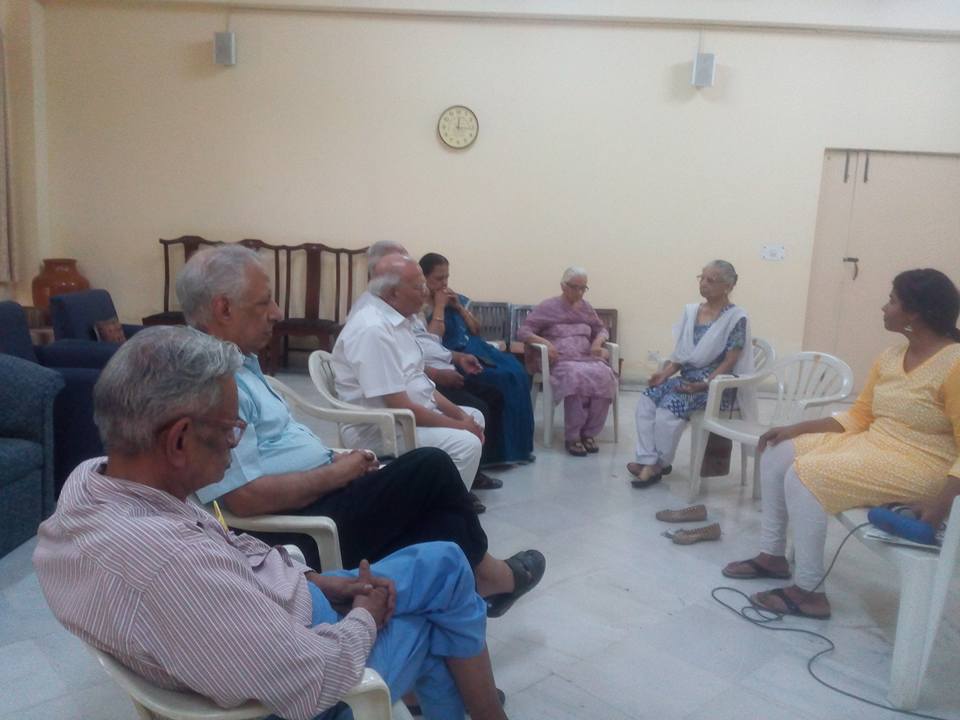HELPING CHILDREN DEAL WITH AILING GRANDPARENTS

I was just 12, ...A telegram arrived. Mygrandfather was serious. We reacheda house of wailing aunts and solemn uncles….. It took me quite a while to understand that my grand pa had died two days ago ……. It took me a long time to accept that I would no longer receive those weekly post cards….tooklonger to accept that I would never ever meet him in physical form. Looking back, I dealt with the grief and the loss all by myself….. could I have been provided better support?
Ill healthand death of grand parents can be a heavy burden on children. Many a time, the parents struggle between sharing the facts and hiding the truths from children and this has an impact on the pattern of building and maintaining relationships with loved ones. Grandparents and grandchildren always share a special bond .When a grand parent is sick, betruthful to your child but in a gentle way.
Illness in the elderly brings along drastic changes in their lifestyle . While some may be confined to wheel chair ; others may be mobile with attenders / nurses; there are yet others who may have various diet restrictions ; some others may need more time for rest and recuperation – whatever the change the illness brings in to their lives , it will have some impact in your child’s. Help your child to accept the change with empathy. Encourage your child to participate in caregiving . Discuss as many details as possible in his/ her presence. When you and other family members find the need to discuss some graver issues regarding the health / illness in the absence of children, ensure you do so in amanner , that does not make your child feel excluded.
In case the disease is contagious, be firm and explain in a gentle yet factual manner , why you are isolating your parent or in law and how it will help him or her to heal.In case the illness has resulted in amputation / disfiguring the physical appearance, explain the reason and encourage the child to meet the grandparent and express his or her support. This will act as a great healing agent.
When the grandparent has experienced an amputation or a disfigurement, ensure you discuss the same with your child and prepare him / her for the change in the physical appearance . At the same time enable him/ her to understand this as a process of recovery from the illness. “ Grandma will now require more help and assistance as the doctors have had to remove her right leg. The doctors knew we love her a lot and wanted her back with us. So they removed the leg that was troubling her . Now she will soon return home and will continue to take care of you when you return from school , although she may find it a little difficult to prepare your favourite snacks. But am sure we are ok with that ……”
When the grandparent is hospitalised or in ICU care, ensure your child visits him / her at least once or twice with necessary precautions to prevent him/ her from catching any infection. This visit is essential to firstly ensure to your child that his grandparent is unwell but being taken care of ; to help him/ her feel that he/ she is also part of the caregivers; and also to prepare him to handle the result of the hospitalisation – recovery / disability / death , whatever it may be.
It is always advisable to introduce deathas a process for all living beings as early as possible, irrespective of you expecting an eventuality in your family. This may invariably invite your child’s curiosity towards knowing when different family members may die. Respond to every question truthfully and without any added sentiment. When we lost ourgrandfather, my eight year old cousin went up to his paternal grandfather and asked him why was he still alive and when he woulddie. His grandfather passed away thirty years later , at the ripe old age of ninety five! If your child is aware of death as a process, it may be relatively easy for you to help him / her understand and deal with his/ her grandparent’s death. If he or she is not, lead him / her towards it. In case of an eventuality, never “expect” a specific reaction from your child . The grandmother was the primary caregiver for a little girl ( all of six years). One afternoon, the grandmother died suddenly of cardiac arrest. While the news was a shock to the parents themselves, they dreaded the impact the news would have on the little girl. Both of them wentto pick her up from school .She was thrilled to meet them at the school gate and since this was a rare treat, she didn’t miss her grandmother, who would usually be there to receive her. As they drove back home, her parents stopped at an ice cream parlour and slowly broke the news to her. The little girl stopped half way , looked up at both of them and continued with her ice cream quietly . On reaching home, she looked at her dead grand mom from a distance and went about her routine very quietly . She looked up her schedule and insisted to go for her tennis coaching. When her parents refused, she broke down and wept for an hour and then she seemedthrough . She had healed in her own way.
Allow the child to experience the grief and heal in his or her own way. Allow the child to be part of the grieving , at the same time, do not insist . Let your child know he or she is free to handle it the way he or she prefers to.
“ Surely two of the most satisfying experiences in life must be those of being a grandchild or a grandparent” – Donald A. Norberg.
Let us facilitate these experiences ……..

Mahalakshmi Rajagopal
Mahalakshmi Rajagopal, Holistic Wellness Practitioner, Counsellor and Healer, Trainer, Certified Social Auditor and Certified POSH Trainer, is a seasoned interventionist, offering counseling, therapy, life coaching as well as healing based on the client's need. She offers both face to face as well as online sessions.
Related Blogs
No related blogs available.
